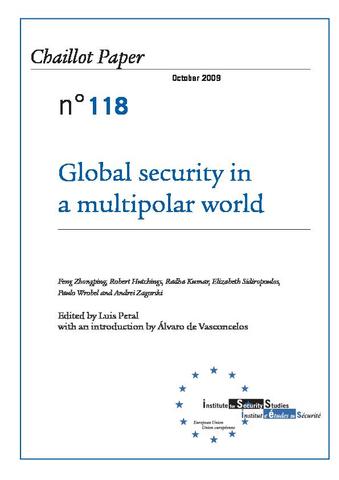You are here
Global security in a multipolar world

In the world in 2009, how can the main global players establish a common approach to security and what form will this take? In particular, will this common approach to security be derived from or related to the concept of human security? What strategies have the big powers – both old and new – developed particularly during the last five years to eliminate the identified threats or to minimise their impact? In order to answer these questions, contributors to this Chaillot Paper were asked to analyse how threats to national and international security are defined in the country of concern. The significance attached by each global player to multilateralism and international cooperation as a means of averting threats, and the extent to which those principles are adhered to, are also examined. The specific means of response range from intelligence sharing and police cooperation to preventing terrorism and organised crime to the use of military force in certain circumstances. The more general approaches include a regional or neighbourhood policy to help stabilise neighbours, adopting measures to counter climate change and engaging in world-wide cooperation to promote development, democracy and the protection of human rights.